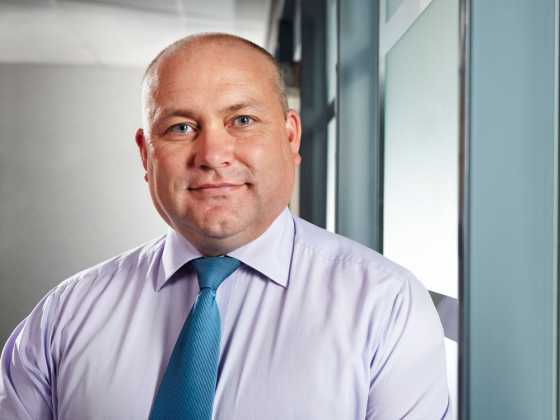Exploring HGV electrification

Small and medium HGV operators in Scotland can receive fully-funded advice and support from Cenex to start exploring the benefits of electric trucks. Chris Rimmer from Cenex explains how the programme works
“It’ll be the year of the truck”, the civil servant declared as he talked about what was next in-line for the decarbonisation of road transport. And he was right!
For many years, it may have seemed to the casual observer that the focus of policy, strategy and implementation interventions to achieve zero emission transport has been on cars. Afterall, these represent just over 80 per cent of all licenced vehicles and around 60 per cent of all journeys. Recent policy announcements on the ZEV Mandate, Electric Car Grant and EV Cross Pavement Grant have added further weight to this view.
But heavy duty vehicles and light commercial vehicles contribute 35 per cent of all UK domestic transport CO2 emissions, despite only being 15 per cent of the overall vehicle parc.
Now thanks to a new initiative by Transport Scotland, small and medium HGV operators can receive fully-funded advice and support from Cenex to start exploring the benefits of electric trucks.
Standing on the shoulders of giant
This offer isn’t the first government intervention in this space, but it is shaping up to be one of the most impactful in terms of helping this important sector consider what it does next.
Early wins for the heavier end of the market include the Battery Electric Truck Trial (BETT) run by Cenex and DAF Trucks, which created what was the UK’s largest e-HGV journey research database, enabling real-world factors to feed total cost of ownership assessments. Key questions often asked by fleet managers and drivers started to be answered, such as what energy efficiency can be achieved in the real world, what impact does temperature have on performance, and how does payload impact on range?
The answers are: 0.9 – 1.2 km per kWh; 30 per cent reduction in winter compared to summer; and ‘quite a bit’. More information can be found on Cenex’s BETT website.In March 2025, Future of Roads Minister, Justine Greening announced the initial locations for a UK-wide zero emission HGV infrastructure network as part of Innovate UK’s Zero emission HGV and Infrastructure Demonstrator (ZEHID) programme. A few of these are planned for South Scotland.
Time for Scotland to shine
This is all great news for the industry, but the pieces of the puzzle are starting to fall into place for Scottish HGVs. And at no cost to them.
In September 2024, the proposed locations needed for a minimum viable en-route charge network for all HGVs were published by the Centre for Sustainable Road Freight at Heriot-Watt University. Sixty-three locations are highlighted, of which 23 are already built or under development.
And in July 2025, the Department for Transport announced UK-wide Depot Charging Scheme, also supported by Cenex. This will enable applicants to claim up to £1m to equip depots with EV Infrastructure to unlock the electrification of commercial vehicles, including HGVs.
With funding available for depots and the en-route charging network starting to be built, now is the perfect time for Scottish operators to start to create evidence-driven strategies to inform vehicle leasing and purchasing decisions in the coming years.
This is all great news for the UK sector, but opportunities for tangible progress have been thin on the ground for Scotland. The publication of a £20,000 grant for small and medium HGV operators now gives an opportunity for progress with the 2,000+ fleets that comprise the majority of the Scottish freight market.
A step-wise approach
Electrification is not a done-deal for everyone. Electric HGVs are expensive and their range still leaves something to be desired, especially in winter with heavy payloads. Furthermore, sites which were previously holding bays for vehicles must now be equipped with chargepoints which may even require the electricity grid connection to be reinforced. The physical layout of sites may have to be changed and operating procedures updated. Health, safety and environmental considerations must also be considered.
Cenex’s 20 years of experience helping companies decarbonise their transport operations means that we are familiar with the questions many managers or operators have.
These include which zero emission technologies and renewable fuels are available now and in the long-term, whether the vehicles available today really are fit for purpose, and how much the vehicles and associated infrastructure are on
a total-cost-of-ownership basis.
We can also help decide which vehicles should transition to electric first and why. On infrastructure, we can help answer questions on when and where the vehicle will be charged, what number and power of chargepoints are required, and how much it will cost.
Regarding sites, we can help answer what the existing electrical capacity of each site is, how many electric vehicles can be charged using the existing supply, and whether they will need a grid upgrade.
Working together with experts
We recognise that this is not just something that can be solved with a computer-produced report or dashboard, this is as much a people problem as a technology one. And so the solution is found in people, not just technology. Our experts have worked with Scottish Water, NHS Grampian, Aberdeen City Council, Kuehne+Nagel and others to collect, process and analyse fleet data to produce Zero Emission Fleet and Infrastructure Reviews. Our standard fleet report goes beyond the minimum requirements set by Transport Scotland to ensure that our clients get actionable recommendations which support their business economically as well as the environment sustainably.
For some, this will mean just knowing where they stand. Others will take these to inform their next round of vehicle purchases. Still others will know they need to start a conversation with SP Energy Networks or Scottish and Southern Electricity Networks.
In all cases, these decisions need to sit on the kind of trustworthy, evidence-driven analysis and expert advice that Cenex can offer. And with the Transport Scotland grant making it free to the operator, what better time than to get in touch with us. (Email info@cenex.co.uk or click here.)






